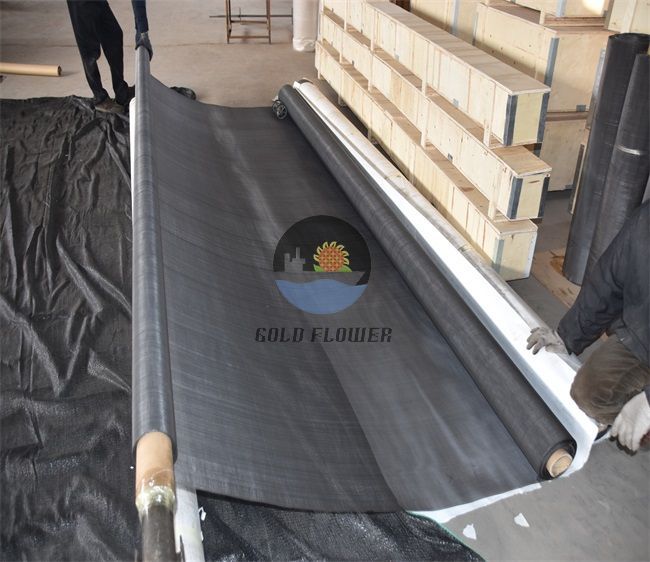Sep . 08, 2024 12:39 Back to list
buy fence wire mesh
Everything You Need to Know About Buying Fence Wire Mesh
When it comes to fencing solutions, choosing the right type of material is crucial for functionality, durability, and aesthetics. Among the various options available, wire mesh fencing stands out due to its versatility and effectiveness. Whether you're looking to secure your property, create a garden enclosure, or even establish a boundary for livestock, understanding how to buy fence wire mesh can make the process easier and more efficient.
Understanding Wire Mesh Fencing
Wire mesh fencing is crafted from thin wires that are woven together, creating a grid-like structure. This type of fencing is widely used in commercial, agricultural, and residential applications. It provides visibility while ensuring security, allowing you to monitor your surroundings without feeling enclosed. Available in various sizes and materials, the right choice depends on your specific needs.
Types of Wire Mesh Fencing
1. Welded Wire Fencing This type is made by welding wires at intersections, providing excellent strength and durability. It is particularly suitable for security applications and can resist sagging or bending over time.
2. Chain Link Fencing One of the most common applications, chain link fencing is made from steel wire twisted into a diamond pattern. It’s cost-effective, low-maintenance, and ideal for both residential and commercial properties.
3. Hexagonal Wire Fencing Often used in agriculture, this fencing consists of hexagon-shaped openings. It’s typically utilized for small animal enclosures, gardens, or to deter pests.
4. Stainless Steel or Galvanized Wire Mesh These materials offer corrosion resistance, making them suitable for outdoor applications where exposure to elements is a concern.
Factors to Consider When Buying Fence Wire Mesh
1. Purpose Define the primary reason for installing the fence. Is it for security, aesthetic appeal, or to contain animals? Understanding the purpose will help you determine the gauge, height, and opening size of the mesh.
buy fence wire mesh

2. Material The choice of material impacts the longevity and maintenance of the fence. While galvanized wire is rust-resistant, stainless steel is an excellent option if you require extra durability for coastal areas.
3. Height and Gauge Wire gauge determines the thickness and strength of the mesh. A lower gauge number indicates a thicker wire, which is generally more robust. For example, a 2-gauge wire is much stronger than a 12-gauge wire. The height of the fence should also be considered, especially if it’s for containing large animals or providing high security.
4. Installation Evaluate whether you will install the fence yourself or hire a professional. DIY installation can save money, but it’s vital to ensure you have the proper tools and knowledge.
5. Local Regulations Check your local zoning laws and regulations regarding fencing. There may be specific requirements regarding height, materials, and even aesthetic guidelines.
Where to Buy Fence Wire Mesh
When looking to purchase wire mesh fencing, several options are available
- Local Hardware Stores Most hardware stores carry a variety of fence mesh options. This is a great place to physically inspect the materials before making a decision.
- Agricultural Supply Stores For those needing fence wire mesh for agricultural purposes, these stores often provide specialized products suited to animal containment and crop protection.
- Online Retailers Numerous websites offer wire mesh fencing with the convenience of home delivery. Ensure to check reviews and product specifications before purchasing.
In conclusion, buying fence wire mesh requires careful consideration of various factors including purpose, material, gauge, and local regulations. With the right knowledge and planning, you can find a durable and effective fencing solution that meets your needs while enhancing the security and appearance of your property.
share
-
Safety Mesh for Windows – Durable Mosquito and Insect Protection Solutions
NewsJul.08,2025
-
12x24x1 Air Filter – High Efficiency Replacement for Improved Air Quality
NewsJul.08,2025
-
Premium Stainless Steel Mosquito Mesh - Durable, Rust-Resistant Protection for Windows & Doors
NewsJul.08,2025
-
Premium Stainless Steel Garden Mesh for Lasting Durability Best & High Quality Mesh Solutions
NewsJul.07,2025
-
Gold and White Blackout Curtains – Elegant Light Blocking & Insulation for Home
NewsJul.07,2025
-
Premium Spa Filter Cartridge for Clean Water Spa Pool Filters Cartridges for Jacuzzi Durable, high-efficiency spa filter cartridge for spas and jacuzzis. Improve water quality—order your pool filter cartridge now!
NewsJul.07,2025

